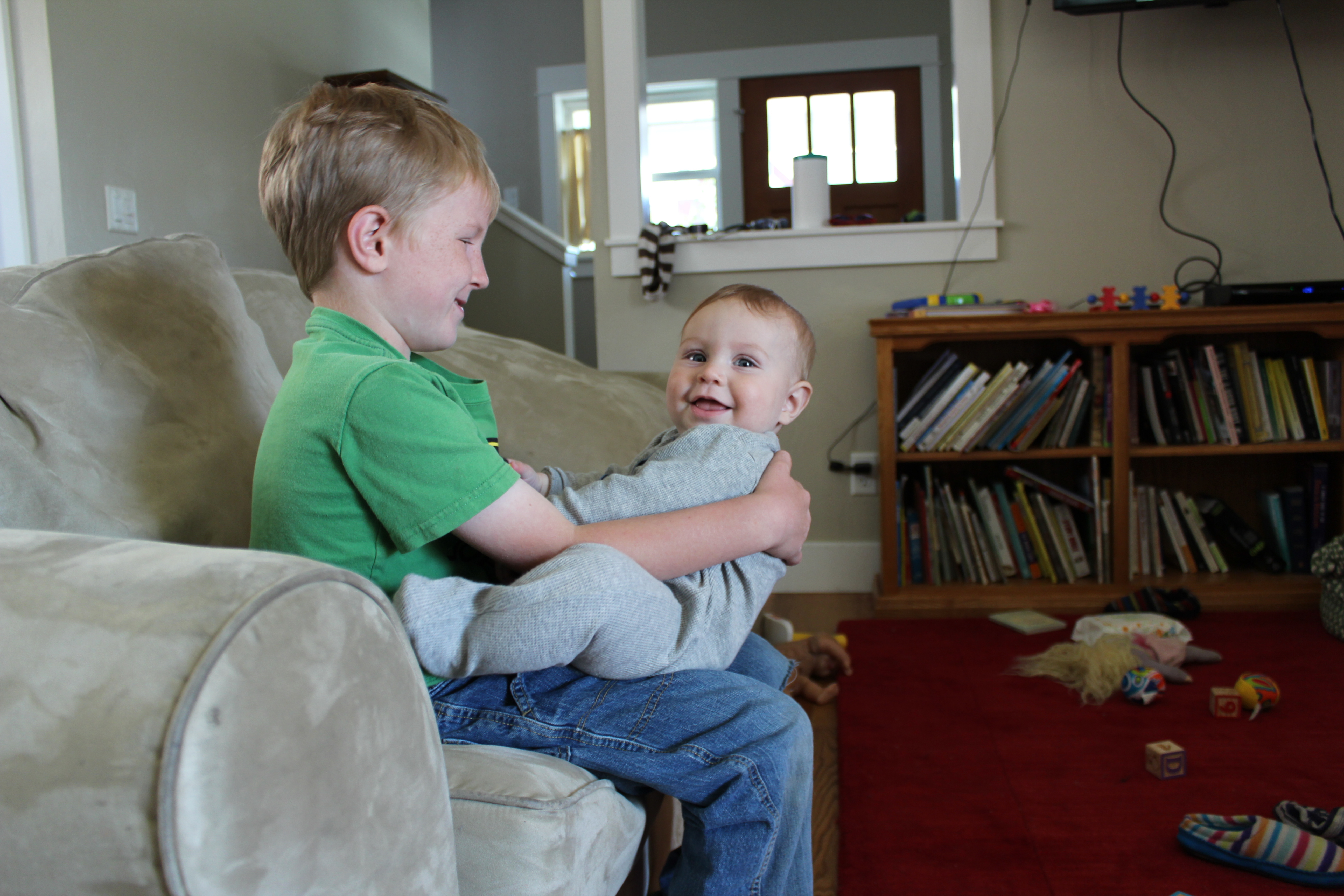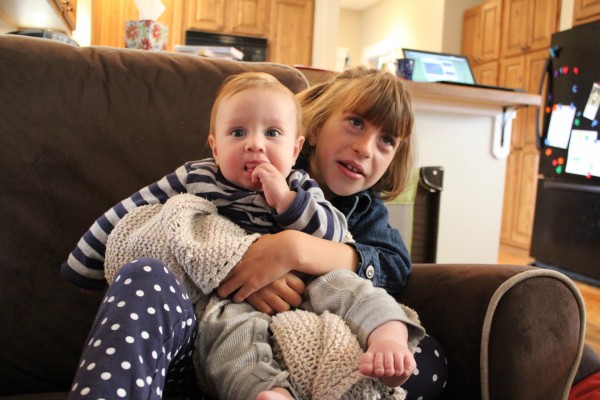
Seeing your children get along is one of the greatest joys of parenthood.
Last year at this time we were binging on Youtube videos of birth, breastfeeding, and crying babies. After having my first two babies 2 years apart, this 3rd tag-along came 5 years after, and I anticipated a more difficult transition, so I was trying to prepare them for what labor would be like, that a baby would cry, and that we all were so excited! The transition from 2 to 3 children went super well, with the kids even clamoring for more, “next time maybe you’ll have TWO babies!”
While I’m absolutely not praying for twins, I am happy with how our transition went from 2 to 3 children, so I wanted to share what worked for us.
1. Don’t apologize for having another child. You are giving your older child(ren) the lifelong gift of a sibling to share memories and adventures with. If you feel like your time may be spread too thin, that may be a feeling that you need to deal with (see #4 here to learn how to release judgement on yourself) so that you can remain reassuring to your children. Your children are not your therapists, and you don’t need to give them the idea that you are unsure about the transition.
Instead, talk about the fun things that siblings will do, you’ll have company in the back seat of the car, we’ll get to kiss his little baby cheeks, buy teeny-tiny clothes, and show him to Grandma and Grandpa on Skype. Don’t ask if they would like company in the back seat of the car (or anything else), but rather tell them in an excited voice with a smile. Confidence goes a long way for an easy transition. Children like to know that their parents are at peace.
If they protest that they don’t want company in the back seat, or that they don’t like baby clothes, often because they want to see what your reaction may be, you can say things like, “That’s okay, maybe you don’t want the baby in the back seat with you, you might change your mind though.” Try to avoid giving excess attention to this kind of behavior, but rather focus on anything they are excited about instead.
2. Do be realistic about how much babies cry and need. This is where our youtube videos came in, this book is also a great book to help prepare children for the change. I wanted to make sure the kids had been prepared for mom being loud during labor, that it would take me a few weeks to recover, and that babies need milk from their mom, and that was just how they were when they were babies too, and that baby would cry ‘alot’ (We decided to overemphasize the crying just in case, he didn’t actually cry that much).
I reminded them, “It’s okay, the baby will cry, you did too. It’s what babies do. Maybe this baby will like me to sing You Are My Sunshine, you sure did!”
When children know what’s coming, and the baby’s behavior isn’t a surprise, they again are reassured that their parents have it all under control.
3. Avoid competitive phrases. Telling a child why he is better than someone else (a sibling, yourself, a friend, a peer, etc.) is an easy way to get a short term smile. But life isn’t a competition, and the competitive spirit can pit siblings against each other rather than promoting cooperation and empathy.
I avoided phrases like, ‘look, the baby can’t even put his socks on, look at how awesome you are that you can put your socks on by yourself.’ In favor of relationship-building phrases like, “When you were a baby I always put your socks on too, babies need lots of help from their mom. When the baby is bigger he will do it just like you!”
I also avoided praising how the sibling played with the baby with phrases like ‘he likes you best’ in favor of stating facts and pointing out feelings to promote empathy, ‘The baby likes it when you tickle his toes while he’s in the carseat, do you see him smile? That must feel good on his baby toes.” Big sister has a sense of pride from making the baby happy, attention from you noticing, and is recognizing the baby’s feelings.
Referring to the siblings with ‘ownership’ promotes family belonging as well. “Let’s go upstairs to go give our Sam a drink of water.” “There’s the alarm, it’s time to get in the car to go bring our Hannah to school!” “Let’s go get our baby up from his nap!” We’re all in this together, and kids like that.
4. Help identify feelings with the child after birth. Everyone has lots of feelings after the birth of a baby, and identifying and talking about these feelings helps the family to feel heard. This post by my friend Teresa is the method that we use, along with phrases like these. “You look so happy to be able to help with the baby.” “It looks like you are frustrated, can you tell me about that?” “You look so proud when your brother looks up at you” “Sometimes I want to get up when the baby needs me to sit so he can nurse too. It’s okay, though, he’s only little and he needs to eat a lot.”

5. Allow older siblings to do as much as they want to. When my older two were toddlers, I went over to a friend’s house and saw her 6-year-old unbuckle the newborn, remove her from the carseat, and walk across the room with her. After initially silently gasping as I was sure this was not a good idea, I saw how relaxed and happy this family was, and how much love the siblings had for their baby. And the baby, though not carried with quite the smoothness as if an adult had done the carrying, was quite safe and taken care of.
Children are more capable than we generally expect them to be. Of course, you need to be near to ‘spot’ during the early carrying and care taking, and to prevent ‘can you watch the baby for a minute’ from becoming ‘pile all the blankets on the baby’. Allowing the older siblings to help in real ways, not just fetching things or being quiet, empowers them. Empowered children are happy and accepting children.

Learn how to heal leaky gut

60-page ebook of all my best GAPS Diet (Gut and Psychology Syndrome) articles all in one place.

